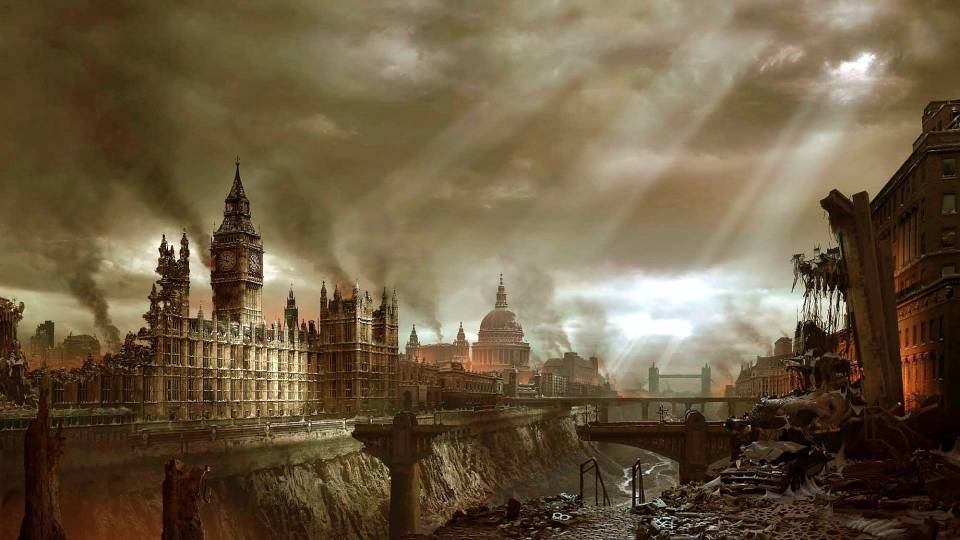‘Heaping Up Its Own Funeral Pyre’: Britain, Islamic Terror, and the Cult of Pacifism
Fail, and that history turns into rubbish,
All that great past to a trouble of fools.
— W.B. Yeats, Three Marching Songs
In 1937 the great Anglo-Irish poet William Butler Yeats was visited by a professor from India who, after lengthy discussion over lunch, requested a message to his country. ‘Let ten thousand men of one side meet the other. That is my message to India,’ replied Yeats, who then seized a Japanese sword and shouted, ‘Conflict, more conflict!’ To twenty-first-century ears, the message might seem bizarre, and may even have jarred the constitution of Yeats’s visitor. It was rooted, however, in the context of the poet’s Romantic and nationalistic belief system — a belief system in which conflict was both natural and good, and essential to the prevention of tribal decay, pollution, and decadence.
We are now, of course, far removed from such an understanding. It has been exiled from artistic and political expression, and driven from instinct by a weak and perverted culture. In the present, to be angry is ‘to let your enemy win.’ To hate is to commit the most grievous of sins of personality. To assert yourself and your interests is to perpetrate a pathological level of selfishness. Yeats would be repulsed. He would have understood that whereas conflict offers at least the opportunity for victory, and thus assumes a heroic quality, the pacifism currently inculcated in the West offers only ignoble defeat and death.
The Yeats anecdote recurred to me in the early hours of the morning as I cast my eyes over emerging media commentary on the latest jihadist attack in London. With depressing regularity the mainstream media, politicians, and cultural personalities ascended into the airwaves like insects disturbed from a nest, all carrying the same poison. To be sure, no-one dared express surprise at the latest Muslim atrocity — we are, perhaps fortunately, getting to the point where that particular affront has exhausted its viability, although faux expressions of ‘shock’ continue to reverberate. Instead, the narrative advanced by these elites was based around the idea that terrorism “should not divide us.” Quite apart from the fact that a multicultural society means that there is no longer any ‘us,’ and the fact that terrorism aims to terrorise rather than ‘divide’ a population, the statement itself should be read as containing a subliminal message: “Do nothing.” It is an enjoinder to pacifism — to surrender.
There is nothing noble about refusing to be moved or motivated by terrorism. If a man broke into my home and assaulted my family I am not made heroic by standing in the corner and pretending that nothing has happened or pretending we’re brothers after all. In the last twenty-four hours social media has been awash with liberals appealing to images of British stoicism during the Blitz of the Second World War. Such allusions are flawed for two reasons, the first being that the stoical, ‘stiff upper lip’ Blitz narrative is nothing more than a myth and a cultural trope. The late British historian Angus Calder’s masterpiece, The Myth of the Blitz, clearly demonstrated that far from showing the British at their finest hour, the Blitz disrupted the lives and broke the will of the vast majority of Londoners, causing a quarter of the population to flee to the countryside. And rather than encouraging national solidarity, both Winston Churchill and the Royal Family were booed while touring the aftermath of air-raids. If the aim of the German air raids was to instill genuine terror, weaken morale, and disrupt the life of the city, it largely succeeded in these goals. And if contemporary Britons believe that they can survive Islamic terror by appealing to a fictional ‘Blitz spirit,’ then they are horribly mistaken.
Read the rest of Andrew Joyce’s article at The Occidental Observer






















